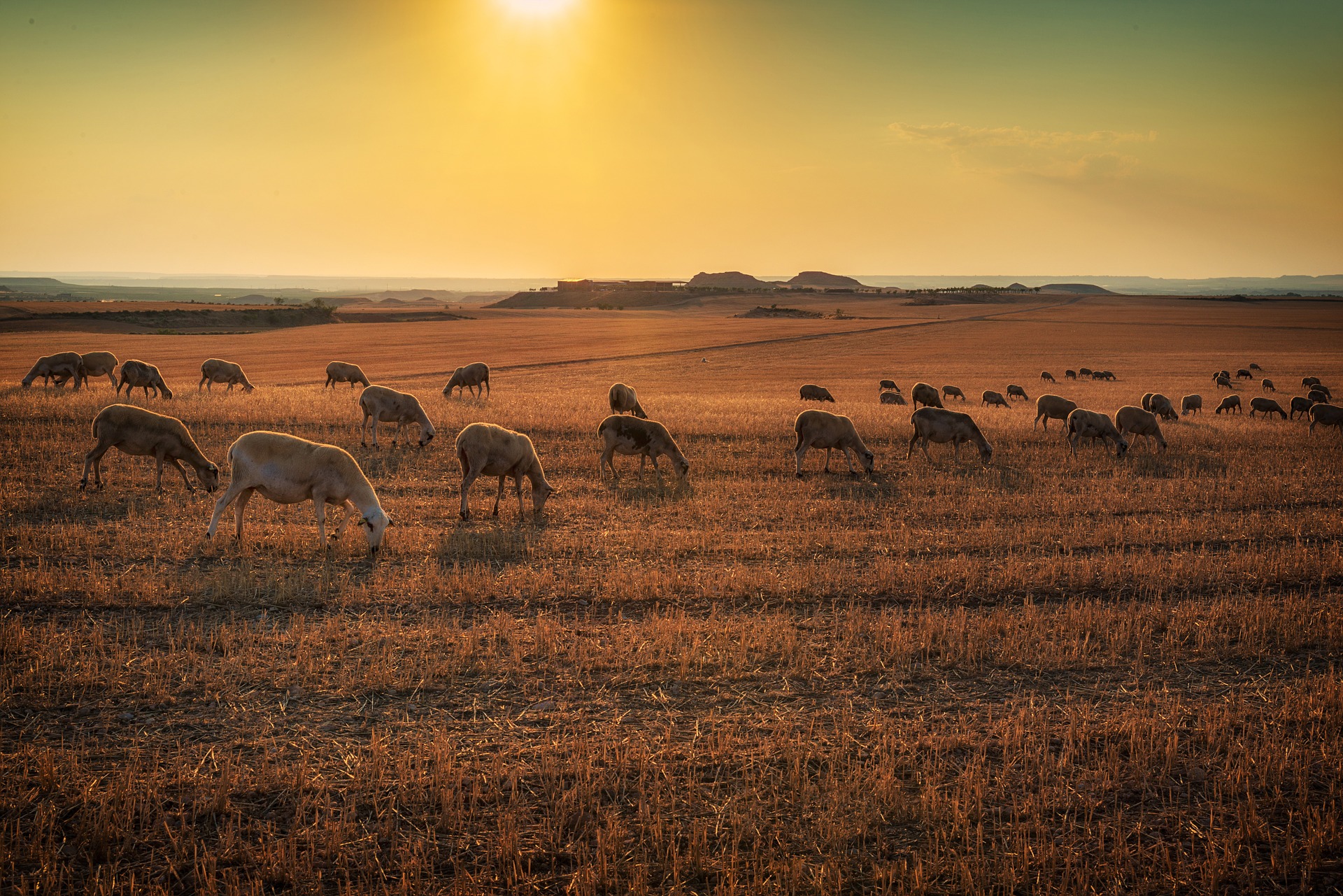Just Walk and Do Not Be Afraid
I was reading through Psalm 23 in Hebrew this week, marking it up on the Accordance app on my iPhone, and something occurred to me for the first time: There are only two things the person in this psalm is seemingly asked to do: “Just walk and do not be afraid.” With the exception of the “I shall not lack” in the opening verse and “I shall dwell” in the last, the only two places where the first-person is used is in Psalm 23:4: “Even though I walk (elek) in a ravine of deep darkness, I do not fear (lo-iyra) evil…” Those are the only two things the person takes initiative for; everything else is taken care of by the Shepherd. The Lord makes the sheep lie down in green pastures. He guides them to restful waters. He restores their life. By means of this rod and staff, He comforts them. He arranges a table for them. He anoints the head with oil. All of the benefits that come to the person of Psalm 23 come from the Shepherd: the green pastures, the restful waters, the restored soul, the paths of righteousness, his presence, his protection and discipline, his anointing.
As one moves along through the psalm, there is a movement from the pastures to the palace. The first clue is in the opening verse as it identifies the Shepherd as Yahweh—the Lord. We also find this royal theme on the other side of “being led in paths of righteousness,” as it says He leads “for his name’s sake.” The Hebrew is prefixed with the letter “lamed” (ל) which can indicate purpose (“in order to”, “for the sake of”) or direction (“toward his name”). It may have both senses here, as one can imagine sheep walking in the direction of their Shepherd’s voice. But in a Torah-centered world, “paths of righteousness” is an allusion to the commandments of the Torah; so it has the sense of walking in accordance with the ways of the Divine Shepherd by obeying His commandments. The Shepherd’s ways are higher than the sheeps’ ways. Thus their ways must conform to His. The royal imagery becomes much thicker toward the end of the psalm with the language of an “arranged table,” the “oil anointing the head,” and the “dwelling in the house of the Lord.”
Yet with all of these benefits, with all of this goodness, with all of this restful happiness, what are we to make of the darker pieces of this psalm? the “ravine of deep darkness”, the “evil”, and the “enemies” before which a table is arranged? Imagine yourself a sheep, walking toward the voice of the shepherd. Bright sunny day. Green pastures. You graze a little here. You graze a little there. You move along. Where shall you go for your water? Sure, there’s moisture in the grass. But all animals eventually need more to drink. The only place to get that kind of water is at the river, brooks, and streams. How shall you get there? What will the terrain be like? The rivers and brooks are down in the valley. And the only way to get there is to walk down the ravines. Through the passes, the sun gets blocked from view and there is a deep dark around various corners and curves. Why should this bother you? Well, for the same reason it would bother your shepherd: your enemies may lie in wait for you along the way. In fact, given that your enemies need water as much as you do, the most likely place you’ll encounter them is on the way to the river or brooks. The rod and staff of the Shepherd must be a great comfort on that journey down the ravine to the water. The “arranged table” seems like it has shifted from the pasture to the palace, such that one is now in a royal place in the presence of one’s enemies. But perhaps there is something to be made of its place in the pasture as well. I imagine the sheep lying down in the grass, having just had their fill of water to drink. It’s mid-morning, that favorite resting hour for the animals as they bask in the morning sunshine. Yet there, just across the river are the coyotes and predators, lapping up the water on the other side or hiding in the deep darkness of the ravine: “You arrange a table before me in the presence of my enemies.” What a picture! Death lies just a few feet away and yet there you are, lying in perfect bliss—you lack nothing. Your Shepherd is with you. He has his rod and his staff. Therefore, what do you have to fear? He will take care of you.
But it’s better than that. The imagery and language in the Hebrew of the final verse is one that keeps the predatory element alive. It says “Surely, goodness and long-suffering love will follow me the length of my days.” The word for follow is (yirdefu) which means “to pursue, chase, hunt down.” So one could understand this as “Surely, the Lord’s goodness and long-suffering love will pursue and hunt me down the length of my days.” The picture is one of a fearless Shepherd taking his sheep to places of blessing where there is every reason to fear. But while enemies may lie in wait, ready to take your very life, you lie in comfort, having your soul restored in complete and total peace. Your cup is the river and it overflows. The goodness and longsuffering-love of God have “out-hunted” your enemies. You are His, and nobody can snatch you out of His hand. You will dwell in His house the length of your days. If the Lord is your Shepherd, you lack nothing. If you are expected to do anything, it is simply this: “Just walk and do not be afraid.”






Recent Comments